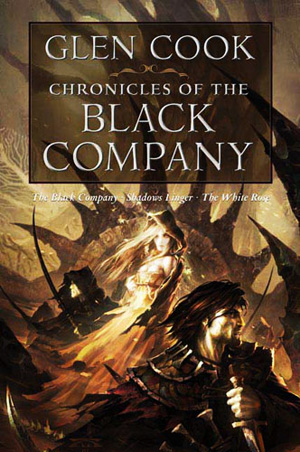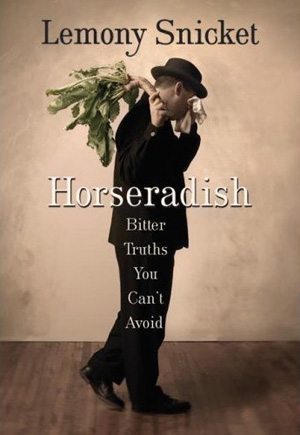Of course, I can't promise you the regularity of this segment. For one thing, there's a possibility that I might not have finished even one book in a particular month. I am after all a medical student and time is pretty hard to come by for me. Right before I started day one of medical school, a friend of mine - the only other guy in my class in college who shared my love for speculative fiction, and who had already started his course ahead of me - said this;
"You won't have time for novels."
That sounded like a dare, don't you think? In response to that, I made a vow to never yield to pressure, or give up my favourite pastime. So, while I am perfectly capable of scraping up loose time from the floor for frivolous reading (during meals, right before I sleep, in those minutes before lectures commence etc.), I can't guarantee that I will try as hard in updating these book reviews.
Alright, that's about all the introduction you'll ever need. In the month of March, I've had two weeks of exams and a week of class, and only about a week of holiday - so I only read Chronicles of the Black Company by Glen Cook (which is a trilogy containing, surprise surprise, 3 books), Horseradish: Bitter Truths You Can't Avoid by Lemony Snicket, The Well-Built City Trilogy by Jeffrey Ford, Bridge of Birds by Barry Hughart and lastly, Artemis Fowl and the Lost Colony by Eoin Colfer. I also read the first three books of The Dresden Files series by Jim Butcher which I borrowed from Shaki at the beginning of this month, but I'll reserve judgment until I read the rest of the books. That makes... 12 books in total. Damn, I rock.
Chronicles of the Black Company
by Glen Cook
"Evil is relative. You can’t hang a sign on it. You can’t touch it or taste it or cut it with a sword. Evil depends on where you are standing, pointing your indicting finger."Croaker
Look at your standard fantasy epic; what's in it? You got your assembly line Dark Lord who had either been quietly gathering his power after his defeat ages ago, was recently released from a magical prison or came from another plane of existence to enslave all living blah blah, and he has his evil empire, his cowled and shadowy lieutenants and his army of always-chaotically evil minions. Then there's the heroes, the shining paragons of light and righteousness who will stand against all odds against the Dark Lord and kick his Dark Ass from this side of Fantasy Land to the next. In books like these, we typically follow the story of the Chosen One and his buddies because, well, who else is worth reading about, right?
Chronicles of the Black Company, published between 1984 and 1985, stabbed that tired piece of convention squarely in the heart as it detailed the trials and tribulations of the Black Company - an elite band of mercenaries made up of exiles, fugitives and amoral killers - as they do the biddings of their employer, the mysterious Lady, a powerful ancient sorceress who runs an evil empire. It's a gritty character driven story, told mostly from the point of view of the company's surgeon and annalist, Croaker, over three books; The Black Company, Shadows Linger and The White Rose. There aren't many words wasted on scenery and description porn, as fantasy writers are wont to do though personally, I find the author's spartan style to be a bit dry at times.
The best thing I like about the trilogy besides the fresh angle of storytelling is that it humanises the extras and working class characters in a fantasy epic. It tells you the story of the little people who got caught between the forces of good and evil, and how they cope with it. And speaking of good and evil, distinguishing between the two in the Chronicles of the Black Company isn't as straightforward as one might think - because there aren't really any good guys.
What truly these novels apart is that, as you read on; you'll discover that there aren't really any bad guys either.
Score: 6/10
Horseradish: Bitter Truths You Can't Avoid
by Lemony Snicket
"Life is a turbulent journey.
fraught with
confusion.
heartbreak.
and inconvenience.
This book will not help."On the back of Horseradish:
Bitter Truths You Can't Avoid
As I've already detailed in a post earlier this month, Jen gave me this book. It is a quotation book partly drawn from the set of children books, A Series of Unfortunate Events also written by Lemony Snicket (or Mark Handler, as he's known in the real world) in the style - or possibly even in parody - of your usual "wit and wisdom" compilation books.
This book panders particularly to readers who have a warped streak in their sense of humour. The quotes in this book played an incredible range of emotions; from funny, nonsensical and utterly random to serious, profound and at times, even a little depressing. But what am I doing describing the book to you? The book speaks for itself! Tell you what. I'll just open some random pages in the book and give you a couple of gems from them.
Here's one from Chapter 8, themed Emotional Health,
If an optimist had his left arm chewed off by an alligator, he might say, in a pleasant and hopeful voice, "Well, this isn't too bad. I don't have my left arm anymore, but at least nobody will ask me whether I am right-handed or left-handed," but most of us would say something more along the lines of "Aaaaah! My arm! My arm!"
and here's another from Chapter 12, which carried the heading of An Overall Feeling of Doom that One Cannot Ever Escape No Matter What One Does,
Many old folktales portray Death as a cloaked figure who knocks on the doors of the souls he has come to whisk away, but that is not always the way of the world. Sometimes Death may approach the door very slowly and very loudly, so that by the time he knocks everyone in the neighborhood is aware of his approach, or he may prefer to pick the lock of the back door and sit up all night in your kitchen until you stroll downstairs in your bathrobe and learn that he has been waiting for you, sitting in your favorite chair and rearranging your silverware when he got bored.
I'm going to spend a lot of time trying to lend this book to everyone I know. Dammit Jen, now I know why you gave it to me!
Score: 9/10
The Well-Built City Trilogy
by Jeffrey Ford
"A nose to me was an epic, a lip, a play, an ear, a many-volumed history of mankind's fall"Physiognomist Cley, First Class
Now let's see if I can summarise the entire trilogy for you in a single paragraph;
The first book of the The Well-Built City Trilogy consists is The Physiognomy, follows the story of Physiognomist Cley, who is employed by a man who built a city in imitation of a city in his mind. The second book is titled Memoranda, which continues Cley's story as he journey through a world in a person's head. The Beyond, the third book, details Cley's travel through a vast and untamed wilderness which is representative of the world's imagination.
Confused? I thought so. Read on, pilgrim. I'll give you a synopsis of the first book. Maybe I can get you hooked on the trilogy too, as I was.
Physiognomy is a fascinating scientific concept in the novels' world (a pseudoscience in ours) which allows anyone who is well-versed in its intricacies to accurately gauge a person's character with absolute precision just from reading and measuring a person's facial features and body proportions. Cley, Physiognomist, First Class, is the best at what he does. He was sent by his employer, Master Drachton Below, to a mining settlement called Anamasobia to investigate the theft of a religious relic from a church there and to arrest the culprit using his expertise. And so began Cley's long and arduous journey which is sometimes physical, occasionally cerebral but always spiritual.
Cley is one of the few main characters in fiction who I genuinely have any affection for. He is an arrogant bastard of a man who thinks that everyone is a malformed troglodyte with profound mental shortcomings, and he would say it too. He drug and date rape women he pick up from the streets. He beat up a man who made a joke which he did not find funny. He's the kind of man whose first thought on seeing children building a snowman is to kick it to pieces. Since The Physiognomy was told in the first person format from his point of view, you get to share his hilariously mean thoughts intimately - though I'm not sure how healthy it is for our souls to do so.
Another discipline aside from physiognomy to be featured prominently in The Well-Built City Trilogy is the method of loci, a mnemonic link system used to remember large amounts of information by reducing them into places in the mind - and a person can recall these data by merely walking through the places in their imagination (like a house or a palace) and looking at details in these mental pictures which are designed to invoke specific details. You can educate yourself about it here. I was first exposed to it a couple of years ago when I read Thomas Harris' Hannibal Rising. In it, it was established that the gifted villain protagonist and psychopathic cannibal, Hannibal Lecter, uses a "memory palace" to house his memories and his sizeable wealth of learning.
The titular Well-Built City was built by Master Drachton Below, Cley's teacher and employer, who modeled it lovingly after a mnemonic city in his own mind - because a mere palace would have been insufficient to store the immensity of his genius. The second book features this theme more prominently.
The third book, narrated by a character first introduced to us in Memoranda, has a decidedly Crusoe-esque charm to it. I am confident enough to say that anyone who liked Defoe's definitive and classical take on survivalist and redemption fiction would enjoy The Beyond as well.
I finished all three book over two days. They were like drugs for me - which is an apt comparison because they were quite possibly the first books I've ever read to ever give me a chemical high (or something close enough anyway). The story, while being deftly-structured and plot-dense, has a wispy, unreal feel to it. Half the time, I was expecting that it'd be revealed at the end of each book that it was all just a big, messy, LSD-induced dream. Normally, if an author tries to heap this much symbolism, extended metaphors and masturbatory intellectualism on me, I would quickly lose interest. Mr Ford, however, pulled this off masterfully.
Score: 8/10
Note:






5 comments:
Yupe. Love this section. Review more fiction books too k!
btw, do you happen to know how much is Horseradish? =D Wanna buy that. Love these sort of books. and i think it could spice up my dull manipal-ian life. lol
The Horseradish is really full of quotes with wicked sense of humour. My favourite one from it would be -
Siblings that get along well have a lot of secrets to hide!
Haha.
hahahhahha now you know how i feel!! faster lend it to the world!
ok la but this will be the first and last time i buy a book for you. lazy. no money. bleh.
yuhhui: all the books I ever reviewed in this blog are fictions. technically, fantasy and SF are subcategories of fiction :P as for the price of Horseradish, try asking my friend, Jen, in her blog. she bought it for me. also, her blog is a lot better than most people's.
Betsy: I thought that quote was a modification of a saying about couples. can't say for sure.
Jen: But you're working! Hence, money aplenty! I already lent it to two other people already, by the way :)
Post a Comment